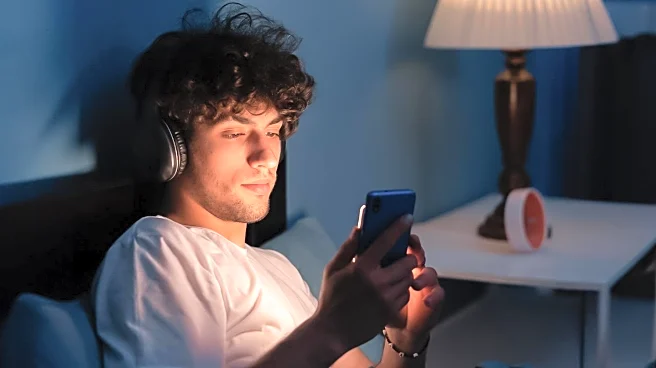What's Happening?
A group of teenagers from Bradford participated in a tech-free bedroom challenge as part of the Teen Summit, a project by Radio 5 Live and BBC Bitesize Study Support. The initiative aimed to explore the impact of removing technology from personal spaces on teenagers' daily lives. Participants, including Elizabeth and Henry, experienced various changes, such as improved sleep and the discovery of new hobbies. Elizabeth, who typically spent hours watching YouTube, found herself engaging in activities like baking and researching ballet. Henry, who often gamed late into the night, reported better sleep and improved school performance. The project highlighted the social aspects of gaming and the benefits of reduced screen time.
Why It's Important?
The tech-free challenge underscores the growing concern over the impact of digital devices on teenagers' health and social lives. With increasing reports of sleep disruption and social isolation linked to excessive screen time, initiatives like this offer insights into potential benefits of digital detoxes. Improved sleep and engagement in offline activities can enhance cognitive function and social interactions, crucial for adolescent development. The challenge also emphasizes the role of parents in setting boundaries to promote healthier tech habits, aligning with broader efforts to create safer online environments for young people.
What's Next?
As the challenge concludes, participants like Henry plan to continue some of the new habits, such as keeping phones out of bedrooms at night. This reflects a potential shift towards more mindful technology use among teenagers. The findings may encourage more schools and parents to adopt similar initiatives, fostering environments that balance digital engagement with offline activities. Additionally, the upcoming Online Safety Act aims to further protect young people online, suggesting a continued focus on digital well-being in public policy.
Beyond the Headlines
The challenge raises questions about the long-term cultural shifts needed to address digital dependency. As technology becomes increasingly integrated into daily life, finding sustainable ways to balance its use with offline activities is crucial. This experiment highlights the potential for educational institutions and families to play a pivotal role in shaping healthier digital habits.











